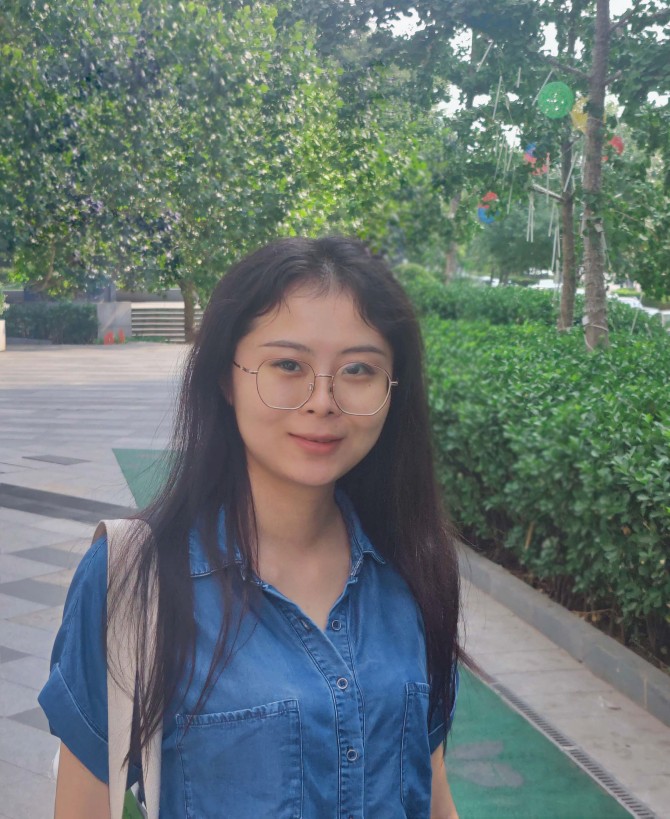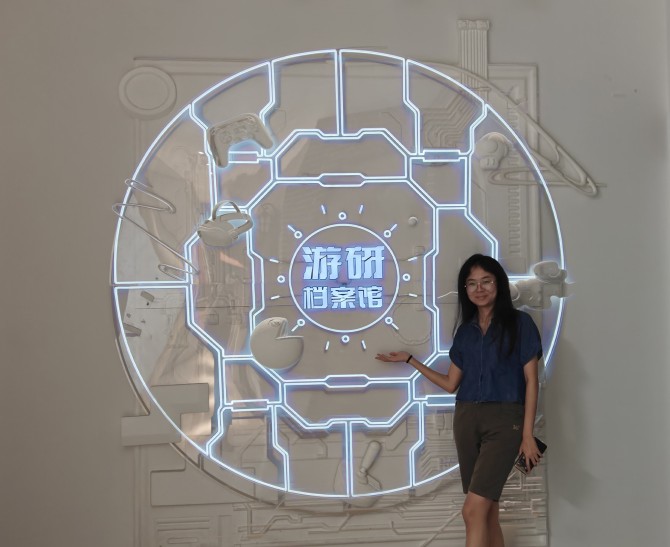News directly from Cornell's colleges and centers
Exploring games’ influence at archives in Beijing
Yuanxue Jing is a doctoral student in Asian literature, religion, and culture whose summer research focused on China’s importation, imitation, and exportation of games and consoles primarily through work at the Youyan Archives in Beijing.
Describe the location of your field research.
Throughout the summer, I have been working at Youyan Archives in Beijing, which was founded just last year. It is affiliated with Youyanshe ("Game Research Association"), China's top game website and blog. Youyan Archives has a vast collection of game consoles and related physical materials, which provide an important history that has not been documented on the internet or has not been properly archived.
What’s the focus of your research?
I primarily research the mobility of media within the Japanese context. Specifically, I explore how mobile novels and games shape the perception of self-embodiment and its relationality with the state. A comparative study in China, on the other hand, can offer a transnational perspective.
What do you hope will be the impact of this work?
When discussing games, China is considered peripheral compared to the dominant influence of the United States and Japan in both academic and collection fields. However, China's importation, imitation, and exportation of games and consoles from the 1980s offer a valuable perspective on global circulation. That said, I also want to challenge the myth that mobility can reach everywhere—what are the limits to the transnational dissemination of cultural products and media? How do we imagine national boundaries in the digital age? These questions will add complexity to my research.
How will field research advance your understanding of your research in a way that classes or theory does not?
For game studies, field research is crucial as it allows for the examination of valuable physical objects and the hands-on experience of playing them. Direct interaction with consoles provides feedback that cannot be obtained elsewhere. Additionally, during the weekend events organized by Youyanshe, I also met people interested in games from various backgrounds. Conversations with them allowed me to improve my public-facing writing, beyond academic writing—an experience that can only be gained through practice.
What has surprised you about your experience?
It wasn't until I spoke to people at the archives that I realized the gap between game enthusiasts and researchers. In the Chinese context, where gaming has only recently shed its "addiction" stigma, the attitudes of gamers towards game researchers and their "legitimacy" are complex. This has led me to reflect on how researchers should position themselves. I hope my efforts in connecting different groups can at least give enthusiasts outside of academia the credit they deserve.
How did Cornell programs and/or faculty mentors help connect you with the opportunity to carry out this research?
This field research would not have been possible without the generous support of the Graduate School, Einaudi Center for International Studies, and East Asia Program. Academically, the professors at Civic Interactive Media and Games Initiatives have provided me with endless support and encouragement, inspiring me to explore further. In addition, the librarians at Cornell have provided me with selfless assistance. Game studies is an emerging field, and I am excited to explore and experiment with these wonderful people!
What would you say to students considering applying to Cornell for grad school?
Beyond solid knowledge, interest in the field or specific topics you'd like to study is important. Your passion will guide you!
Media Contact
Get Cornell news delivered right to your inbox.
Subscribe


